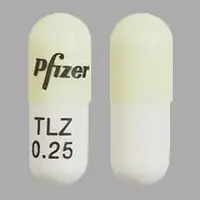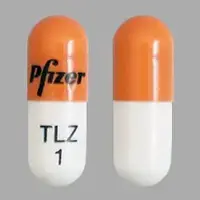Generic name: talazoparib
Drug class: PARP inhibitors
Dosage form: capsule (0.1 mg, 0.25 mg, 0.35 mg, 0.5 mg, 0.75 mg, 1 mg)
Availability: Prescription only
Pregnancy & Lactation: Risk data available
Brand names: Talazoparib
What is Talzenna?
Talzenna (talazoparib) is used to treat specific types of breast cancer and prostate cancer. Talzenna works by stopping or slowing the growth of cancer cells. Talzenna belongs to a class of medications called PARP inhibitors which is the commonly used name for poly (ADP-ribose) polymerase (PARP) inhibitors.
Talzenna is used to treat breast cancer in adults who have deleterious germline BRCA-mutated (gBRCAm) HER2-negative, and it is locally advanced or has spread to other parts of the body.
Talzenna is used in combination with enzalutamide (Xtandi) to treat adults with prostate cancer that is HRR gene-mutated metastatic castration-resistant.
Your doctor will test your tumor type to make sure that Talzenna is the right treatment for you.
Talzenna was first approved by the FDA on October 16, 2018.
Warnings
Using Talzenna may increase your risk of developing bone marrow problems or leukemia.
Talzenna can lower your blood cell counts, and you may get infections or bleed more easily. Call your doctor if you have unusual bruising or bleeding, blood in your urine or stools, weight loss, fever, weakness, tiredness, or trouble breathing.
Your blood will be tested before and during treatment, and your cancer treatments may be delayed based on the results.
Before taking this medicine
To make sure Talzenna is safe for you, tell your doctor if you have ever had:
- kidney disease.
Using Talzenna may increase your risk of developing bone marrow problems or leukemia. Ask your doctor about your individual risk.
Pregnancy
Talzenna can harm an unborn baby if the mother or the father is using this medicine.
- If you are a woman, you may need a pregnancy test to make sure you are not pregnant. Use birth control while using this medicine and for at least 7 months after your last dose.
- If you are a man, use birth control if your sex partner is able to get pregnant. Keep using birth control for at least 4 months after your last dose.
- Tell your doctor right away if a pregnancy occurs.
It may be harder for you to get a woman pregnant while you are using this medicine. You should still use birth control to prevent pregnancy because the medicine can harm an unborn baby.
Breastfeeding
Do not breastfeed while using this medicine, and for at least 1 month after your last dose.
How should I take Talzenna
Take Talzenna exactly as prescribed by your doctor. Follow all directions on your prescription label and read all medication guides or instruction sheets. Your doctor may occasionally change your dose.
Talzenna capsules are usually taken once a day, with or without food. Swallow the capsule whole and do not open or dissolve it. If you vomit shortly after taking this medicine, do not take another dose. Take your next dose as scheduled.
Do not change your dose or stop using this medicine without your doctor's advice.
Talzenna is usually given until your body no longer responds to the medication.
You may get infections or bleed more easily. Your blood will be tested before and during treatment, and your cancer treatments may be delayed based on the results.
For prostate cancer, Talzenna is taken in combination with enzalutamide (Xtandi). You should start or continue a gonadotropin-releasing hormone (GnRH) analog therapy during your treatment with Talzenna and enzalutamide unless you have had surgery to lower the amount of testosterone in your body (surgical castration).
Dosing information
Usual Talzenna Adult Dose for Breast Cancer
Dose: 1 mg orally once a day until disease progression or unacceptable toxicity.
Comment: Select patients based on the presence of germline BRCA mutations as determined by an FDA-approved test.
Use: For the treatment of adult patients with deleterious or suspected deleterious germline BRCA-mutated (gBRCAm) HER2-negative locally advanced or metastatic breast cancer.
Usual Talzenna Adult Dose for Prostate Cancer
Dose: 0.5 mg taken orally once daily in combination with enzalutamide, it can be used until disease progression or unacceptable toxicity.
Comment: Select patients for the treatment based on the presence of HRR gene-mutated mCRPC.
Use: For the treatment of adult patients with homologous recombination repair (HRR) gene-mutated metastatic castration-resistant prostate cancer (mCRPC).
Talzenna Capsule are available as 0.1 mg, 0.25 mg, 0.35 mg, 0.5 mg, 0.75 mg, and 1 mg.
Before Taking
To make sure Talzenna is safe for you, tell your doctor if you have ever had:
- kidney disease.
Using Talzenna may increase your risk of developing bone marrow problems or leukemia. Ask your doctor about your individual risk.
Pregnancy
Talzenna can harm an unborn baby if the mother or the father is using this medicine.
- If you are a woman, you may need a pregnancy test to make sure you are not pregnant. Use birth control while using this medicine and for at least 7 months after your last dose.
- If you are a man, use birth control if your sex partner is able to get pregnant. Keep using birth control for at least 4 months after your last dose.
- Tell your doctor right away if a pregnancy occurs.
It may be harder for you to get a woman pregnant while you are using this medicine. You should still use birth control to prevent pregnancy because the medicine can harm an unborn baby.
Breastfeeding
Do not breastfeed while using this medicine, and for at least 1 month after your last dose.
Related/similar drugs
estradiol, Premarin, Arimidex, Xtandi, Zytiga, Femara, XelodaWhat happens if I miss a dose?
Skip the missed dose and use your next dose at the regular time. Do not use two doses at one time.
What happens if I overdose?
Seek emergency medical attention or call the Poison Help line at 1-800-222-1222.
What should I avoid while using Talzenna?
Follow your doctor's instructions about any restrictions on food, beverages, or activity.
Talzenna side effects
Get emergency medical help if you have signs of an allergic reaction to Talzenna: hives; difficulty breathing; swelling of your face, lips, tongue, or throat.
Talzenna may cause serious side effects.
Call your doctor at once if you have:
- blood in your urine or stools;
- easy bruising, unusual bleeding, purple or red spots under your skin;
- weight loss;
- frequent infections;
- low red blood cells (anemia) - pale skin, weakness, tiredness, feeling light-headed or short of breath, cold hands and feet; or
- low white blood cell counts - fever, mouth sores, skin sores, sore throat, cough.
Your cancer treatments may be delayed or permanently discontinued if you have certain side effects.
Common Talzenna side effects may include
- low blood cell counts;
- nausea, vomiting, diarrhea, loss of appetite;
- hair loss;
- headache; or
- feeling weak or tired.
This is not a complete list of side effects, and others may occur. Call your doctor for medical advice about side effects. You may report side effects to FDA at 1-800-FDA-1088.
See more: Talzenna Side EffectsWhat other drugs will affect Talzenna?
Tell your doctor about all your other medicines, especially:
- amiodarone;
- carvedilol;
- clarithromycin;
- itraconazole; or
- verapamil.
This list is not complete. Other drugs may interact with talazoparib, including prescription and over-the-counter medicines, vitamins, and herbal products. Not all possible drug interactions are listed here.





